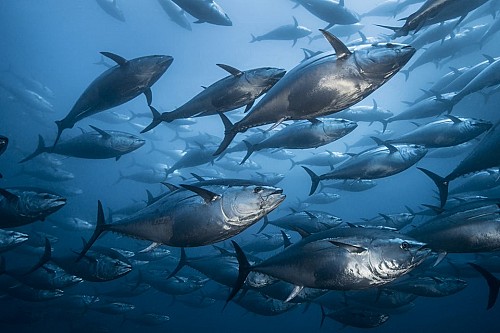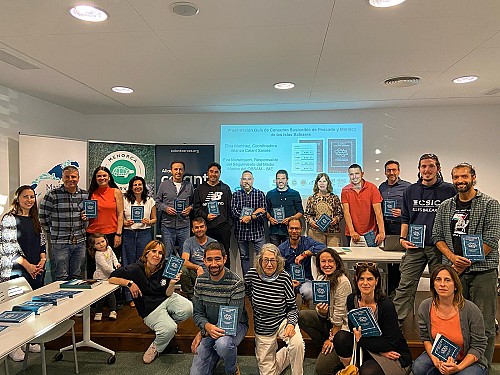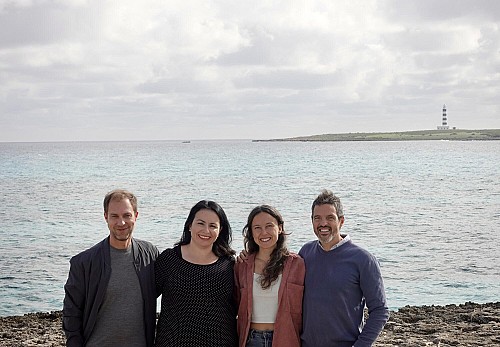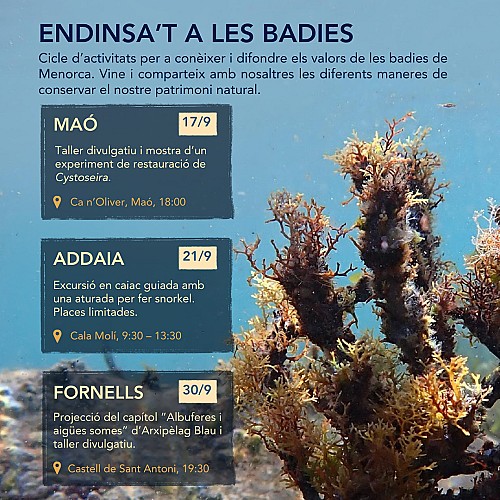Illegal fishing and the illegal sale of fishing products is a widespread practice throughout the Balearic Islands. It affects all sectors related to fishing and its commercialisation, according to the results of the research we present.
The study –carried out during most of 2021 and led by the Marilles Foundation– has gathered information from representatives of professional fishermen, recreational fishermen, spearfishing, inspectors, restaurants, NGOs, scientists and public authorities. More than eighty people were consulted, including the testimony of poachers. The research was carried out under the "Chatham House rule", according to which what is said is revealed, but not who says it. The study was financially supported by Mallorca Preservation and Blue Marine; and in collaboration with Menorca Preservation and IbizaPreservation.
Key findings of the research
- Infringements are common in all areas related to fishing, including professional, recreational and underwater.
- The demand for fresh fish by restaurants and individuals, as well as lack of consumer awareness, is one of the priorities for action.
- The Balearics are no worse off than other regions in Spain. The Balearics have in place advanced regulations and professional inspection-surveillance.
- Current resources are not sufficient to tackle this problem, neither can resources enforce compliance with existing regulations, both on land or at sea.
- The vast majority of respondents are aware of cases of infringements by individuals, restaurants and hotels, but have never taken action.
- There are many barriers –legal, social and economic– that hinder the investigation work of inspectors and law enforcement agencies.
- Diversion of fish in professional fisheries is much more common in the small-scale fishing fleet than in the trawler fleet.
- Most of the restaurants consulted have been offered illegal fish.
- There are reports of:
- Occasional cases of collusion between professional and recreational fishermen to "launder" fish.
- Highly specialised poachers who can earn up to €3,000/month and for whom paying a possible fine is still worth the risk.
- Subsistence recreational fishermen who sell their catch to supplement their wages and make ends meet.
- Organised groups who sell fish illegally; they use warning systems to avoid being intercepted by fisheries inspectors.
Shared responsibility
The aim of the study is to lay on the table a problem that everyone knows about but which no one talks about. The results of the research have been shared with representatives from all sectors, most of whom have validated the results and shared solutions. There is a will to put an end to this problem of infringement by a minority group of people, because unless we do so it risks damaging the reputation of an entire sector and the image of a region that wants to and can be a leader in marine conservation.
Impact on the marine environment and the economy
Illegal fishing and poaching erodes the efforts of all those sectors working to improve the state of the Balearic marine environment and ensure the sustainable management of fish stocks.
"At Menorca Preservation we believe that it is essential to support research in order to better understand a problem and to be able to find solutions together, and this initiative is exactly that. The research process that has been carried out has confirmed the urgent need to find a solution to this problem, to better protect our sea and to encourage the regeneration of the species most vulnerable to fishing," says Rebecca Morris, executive director of Menorca Preservation.
"Illegal fishing and the illegal sale of fishery products represents a haemorrhage of money and jobs for our economy that must be stopped urgently. It is a problem that undermines the professional and recreational fishing sector; it damages recreational opportunities for divers and seabathers and the economic activity associated with them; and it destroys the image of a region that wants to be a model of sustainability. The administration must address this problem by providing more financial resources. Fishermen must act firmly to curb illegalities within their sector. And restaurants and consumers must say NO to illegal fish" says Aniol Esteban, director of the Marilles Foundation.
Long-term project
Now, with the results of the research study and working with all the sectors involved, Menorca Preservation - together with Ibiza Preservation, Mallorca Preservation, Conservation Collective, Blue Marine Foundation and the Marilles Foundation - aim to work on the design of a medium-term project to find solutions and put an end to illegal fishing in the Balearics. The diagnosis and solutions proposed in this study form the foundation of the work that these donor organisations will implement in 2022 in a coordinated and collaborative manner throughout the islands.
Solutions
Some of the areas for action identified in the study include:
- Research to better define the extent and impact of illegal fishing.
- Public awareness campaign among consumers and restaurants to address the demand for illegal fish.
- Working with the respective sectors to support those who want to curb illegal practices.
- Designing certification mechanisms to guarantee the legality of the fish source and limit illegal sales.
- Political work to secure more resources for inspection and surveillance, as well as improving the effectiveness of current resources
Contact and further information
- Study on illegal fishing in the Balearic Islands
- A first presentation took place on 16 December in Mallorca. The video can be seen here.






